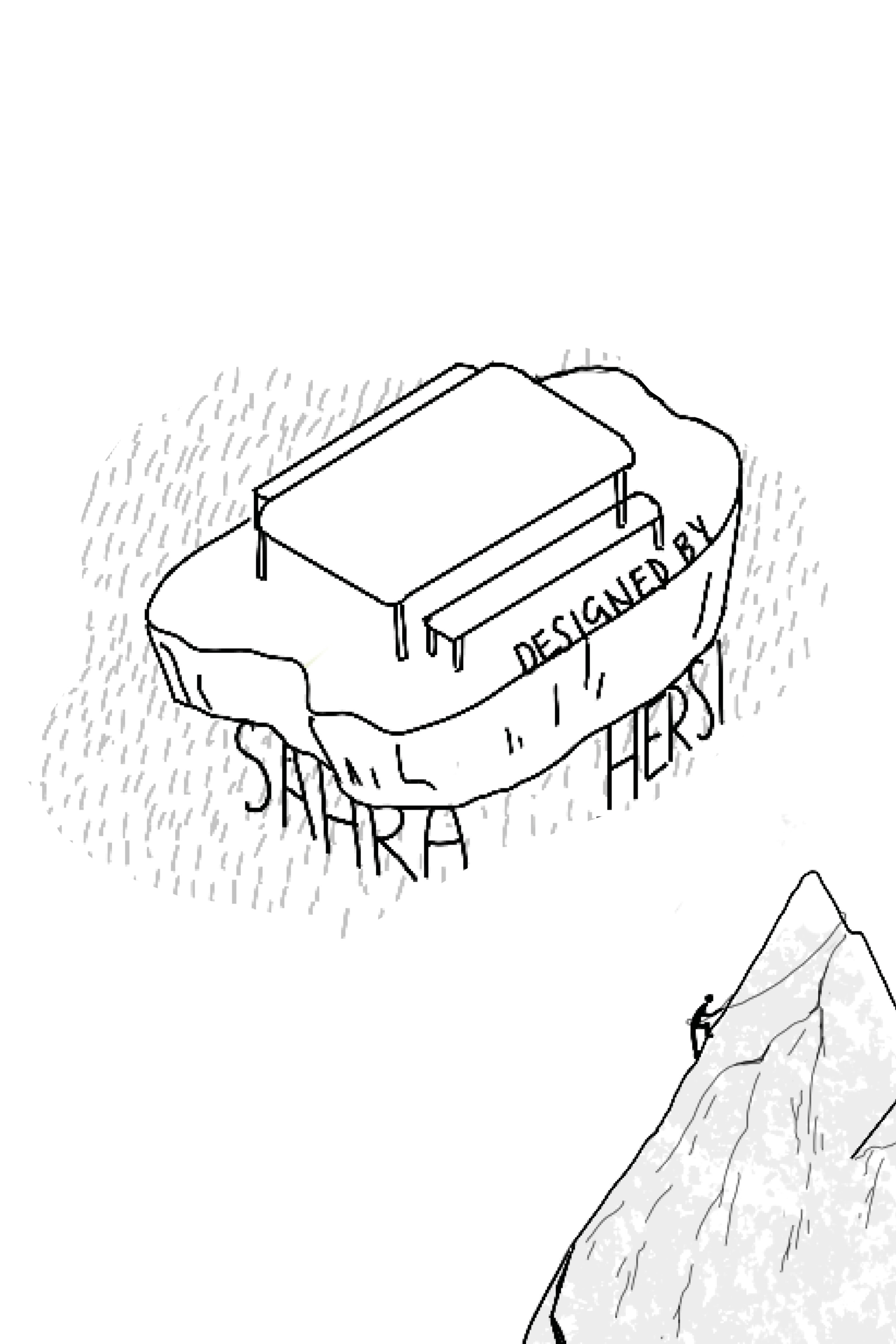The objects that surround us have invisible threads and relationships with our environment. We can learn a lot from them once we begin to dissect and uncover their hidden stories. Restore: Material Mapping attempts to make visible some of the journeys of the materials used in Design Researchers in Residence: Restore.
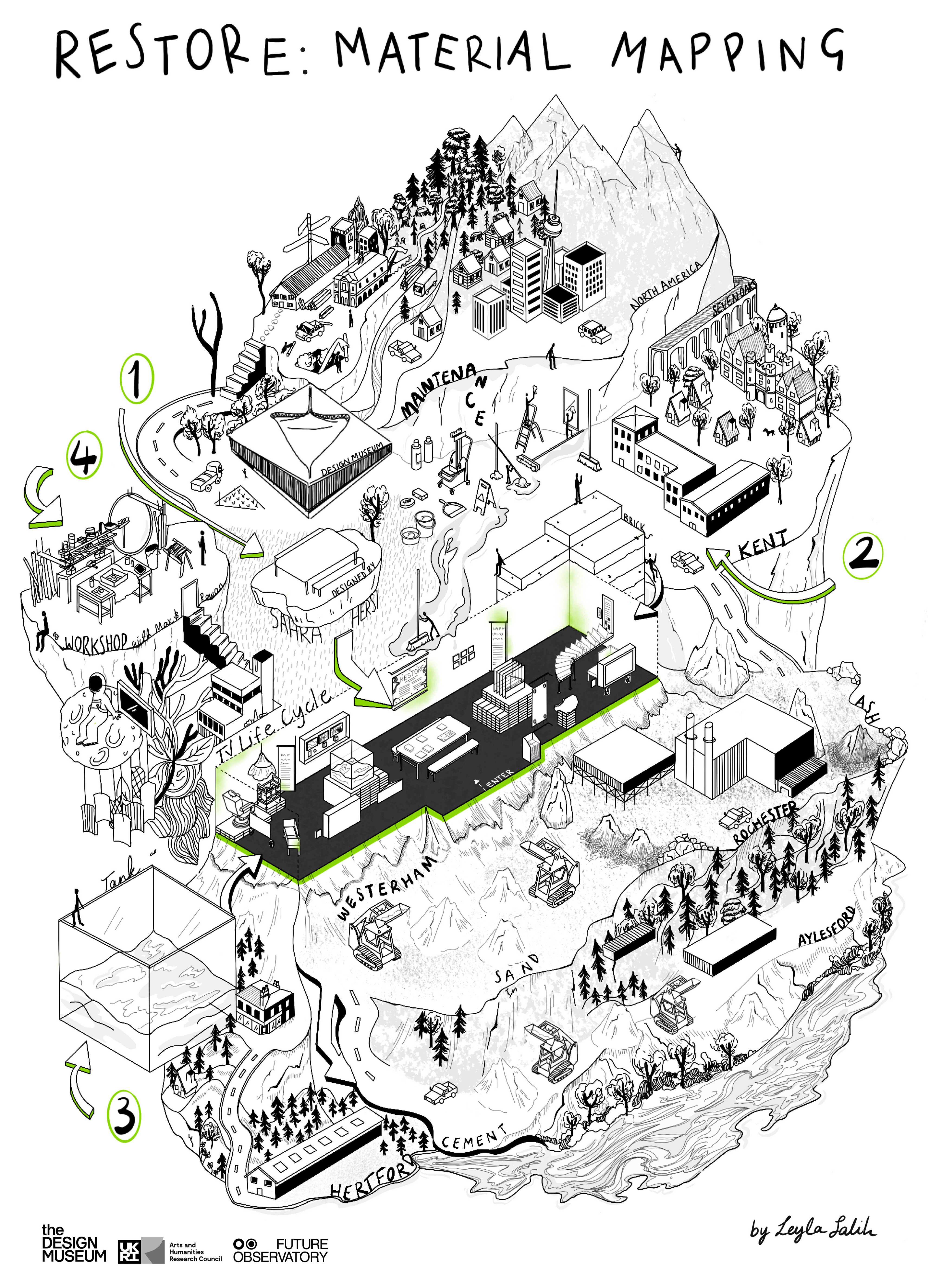
In order to understand how to design more sustainable exhibitions at the Design Museum, there is a need to question and scrutinise how display materials are currently sourced and used. It is imperative that we explore the implications of material choices at each stage of the design process, including how they are displayed and maintained, and what happens to them once an exhibition has closed.
Within this drawing we start to examine some of these environmental questions that accompany sustainable exhibition design. Where did we source materials from? What can be re-used or recycled when the display is taken down? And how do we maintain and repair things to avoid buying new ones?
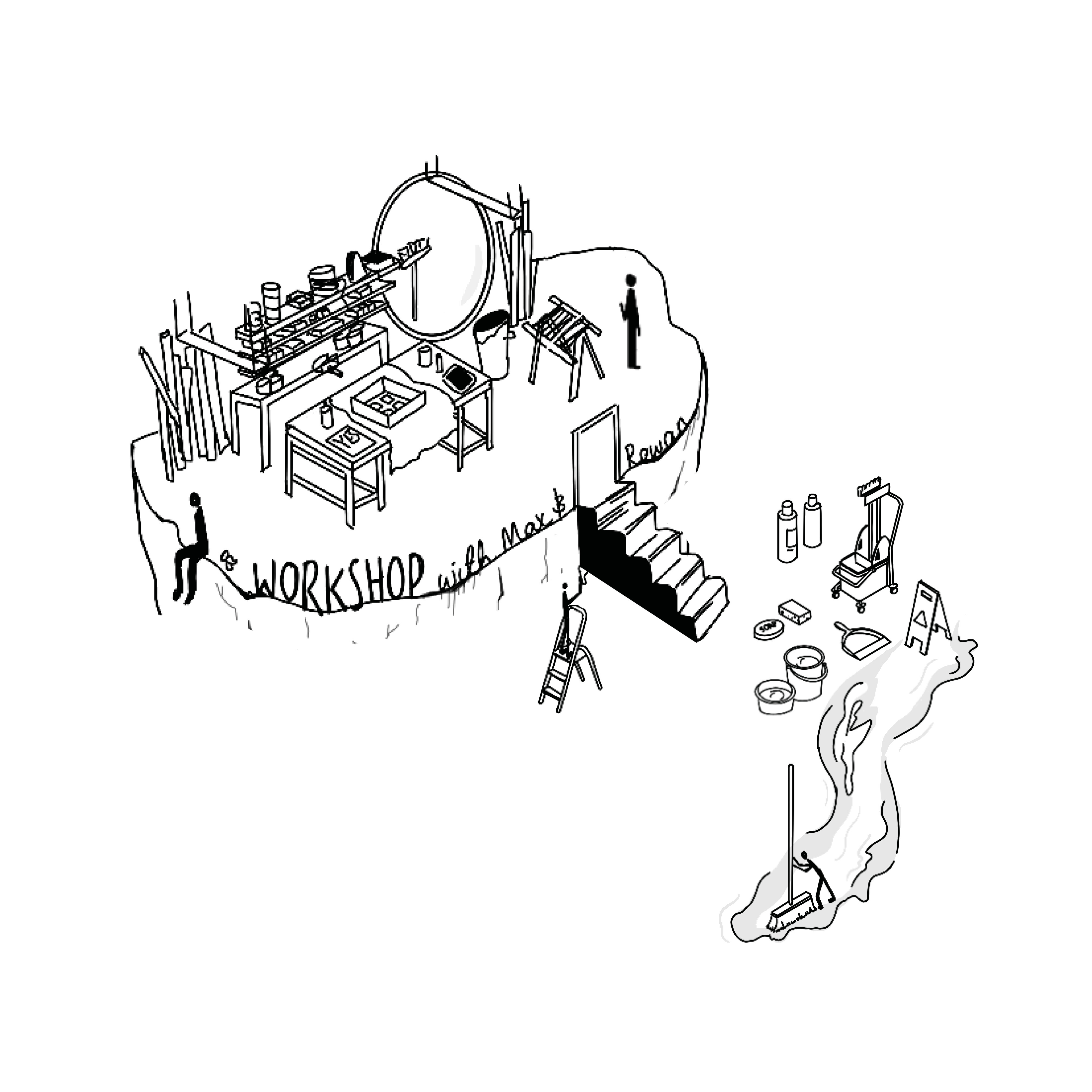
We took this opportunity to evaluate the exhibition and follow the threads of some of the materials and objects in the Restore display – the table, the water tank, the bricks, the TVs – and how the space and objects are maintained. We found that some materials were shipped from unnecessarily far away places, while others were sourced and manufactured nearby, with materials regarded as eco-friendly within the field of construction. We also uncovered some of the people behind the maintenance of our exhibitions and how this plays a key role in the longevity of the objects.
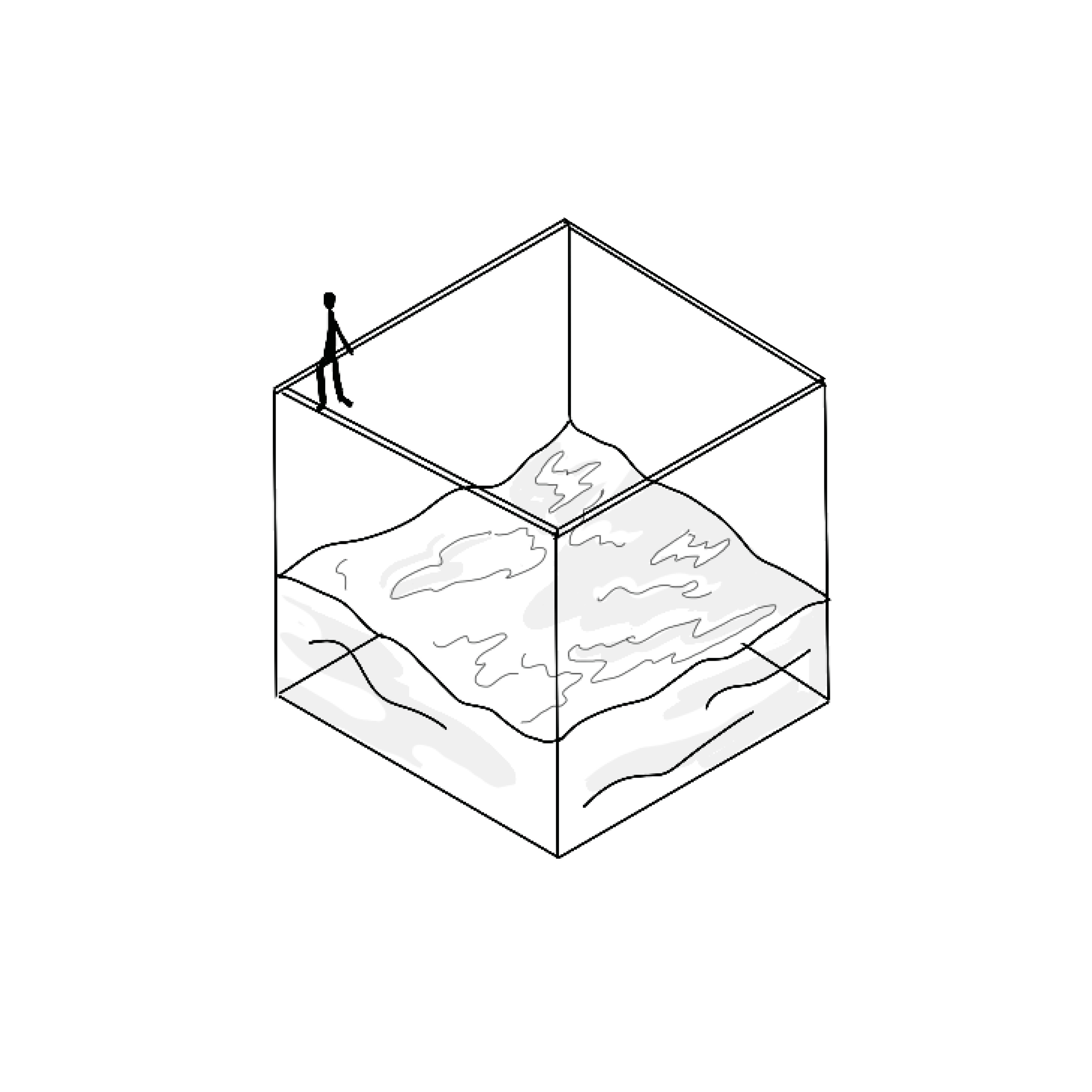
This thinking helps us contribute to the Design Museum’s ongoing aim of designing and building exhibitions in more sustainable ways. Hopefully, this drawing can lead both Future Observatory, the Design Museum and the visiting public to contemplate the environmental impact of our choices. Perhaps we can start envisioning these hidden stories within our own everyday lives and potentially uncover future changes we could make to help our environments.
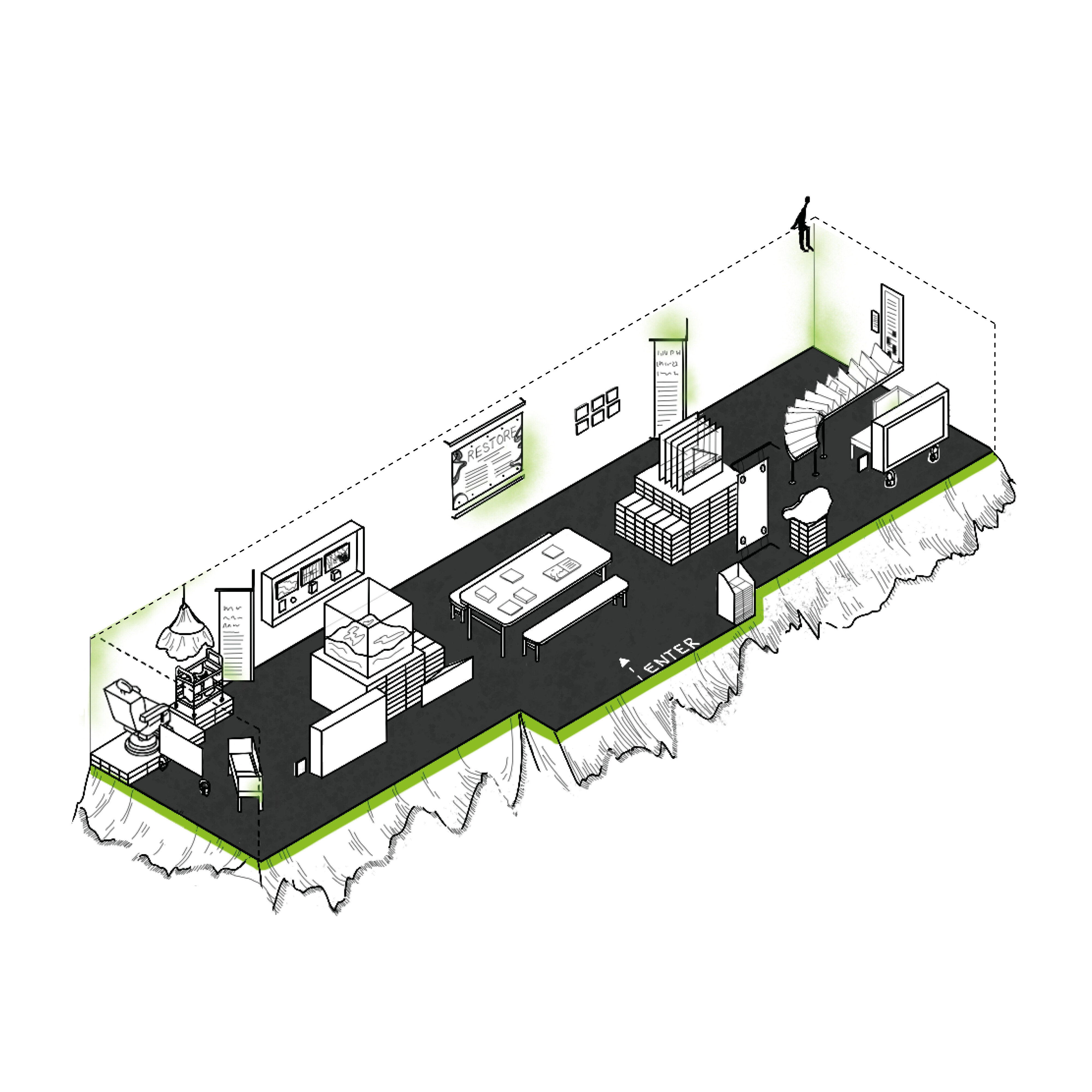
Leyla Salih is an architectural designer and researcher currently completing a master's degree in architecture at Central Saint Martins, University of the Arts London. This work was produced as part of a student placement with Future Observatory that took place in July and August 2022.
